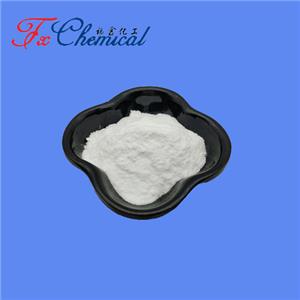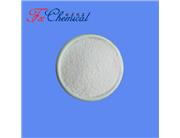Trofinetide is a synthetic analogue of a naturally occurring peptide called glycyl-L-2-methylprolyl-L-glutamic acid (GPE). It is being developed primarily as a treatment for neurodevelopmental and neurodegenerative disorders, including Rett syndrome and Fragile X syndrome.
Key Information about Trofinetide:
Mechanism of Action:
Neuroprotective and Anti-Inflammatory Properties: Trofinetide is designed to mimic the neuroprotective effects of GPE, a fragment of insulin-like growth factor 1 (IGF-1). It is thought to reduce neuroinflammation, protect neurons, and improve synaptic function, potentially leading to improved neurological outcomes.
Modulation of Microglia: Trofinetide appears to modulate the activity of microglia, the brain's resident immune cells, reducing inflammation and promoting a healthier brain environment, which is crucial in conditions like Rett syndrome.
Clinical Applications:
Rett Syndrome: A severe neurodevelopmental disorder primarily affecting females, characterized by normal early growth followed by a loss of motor skills, speech, and other abilities. Trofinetide is one of the few treatments specifically targeting the underlying disease mechanisms rather than just managing symptoms.
Fragile X Syndrome: A genetic condition causing intellectual disability, behavioral challenges, and other symptoms. Trofinetide is also being investigated for its potential benefits in improving cognitive function and reducing behavioral issues in this population.
Clinical Trials:
Trofinetide has undergone several phases of clinical trials, showing promise in improving some of the core symptoms of Rett syndrome, such as motor function, communication abilities, and overall quality of life.
Administration:
Trofinetide is typically administered orally, and dosage regimens are determined based on clinical trial data and patient needs.
Ongoing studies and real-world use continue to refine the understanding of the optimal dosing and long-term benefits of Trofinetide in patients with neurodevelopmental disorders.
Safety and Side Effects:
Common side effects reported in clinical trials include gastrointestinal issues such as diarrhea and vomiting, as well as potential mild to moderate respiratory tract infections.
The safety profile of Trofinetide is continually monitored, especially as it becomes more widely used following its approval.
Development and Approval:
Trofinetide was developed by Neuren Pharmaceuticals and later licensed to Acadia Pharmaceuticals for development and commercialization in North America.
The FDA approval of Trofinetide for Rett syndrome provides a much-needed treatment option for this rare and challenging condition, with ongoing research likely to expand its potential uses.
Conclusion:
Trofinetide represents a significant advancement in the treatment of neurodevelopmental disorders, particularly Rett syndrome, offering hope for improved outcomes in conditions where few effective treatments exist. Its development underscores the importance of targeting the underlying biological mechanisms in treating complex neurological conditions
Remark:The company sells products for research only.
Company information

Contact information
Export sales: Ishara Zhang
Skype:Fortunachem201303
E-mail:hk@fortunachem.com
Tel:+86-27-59207851
Whatsapp/Wechat:+8618007136271

 China
China





